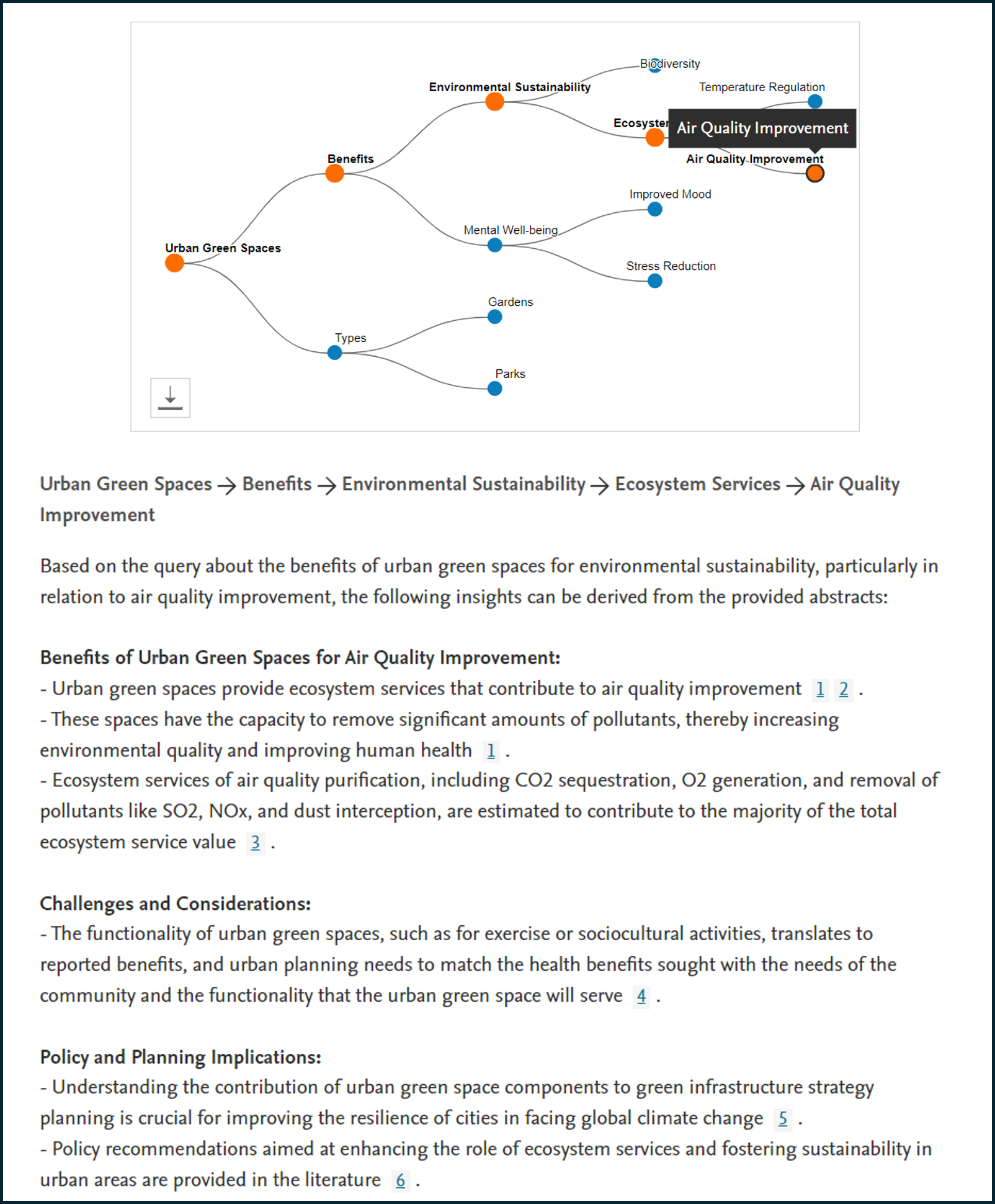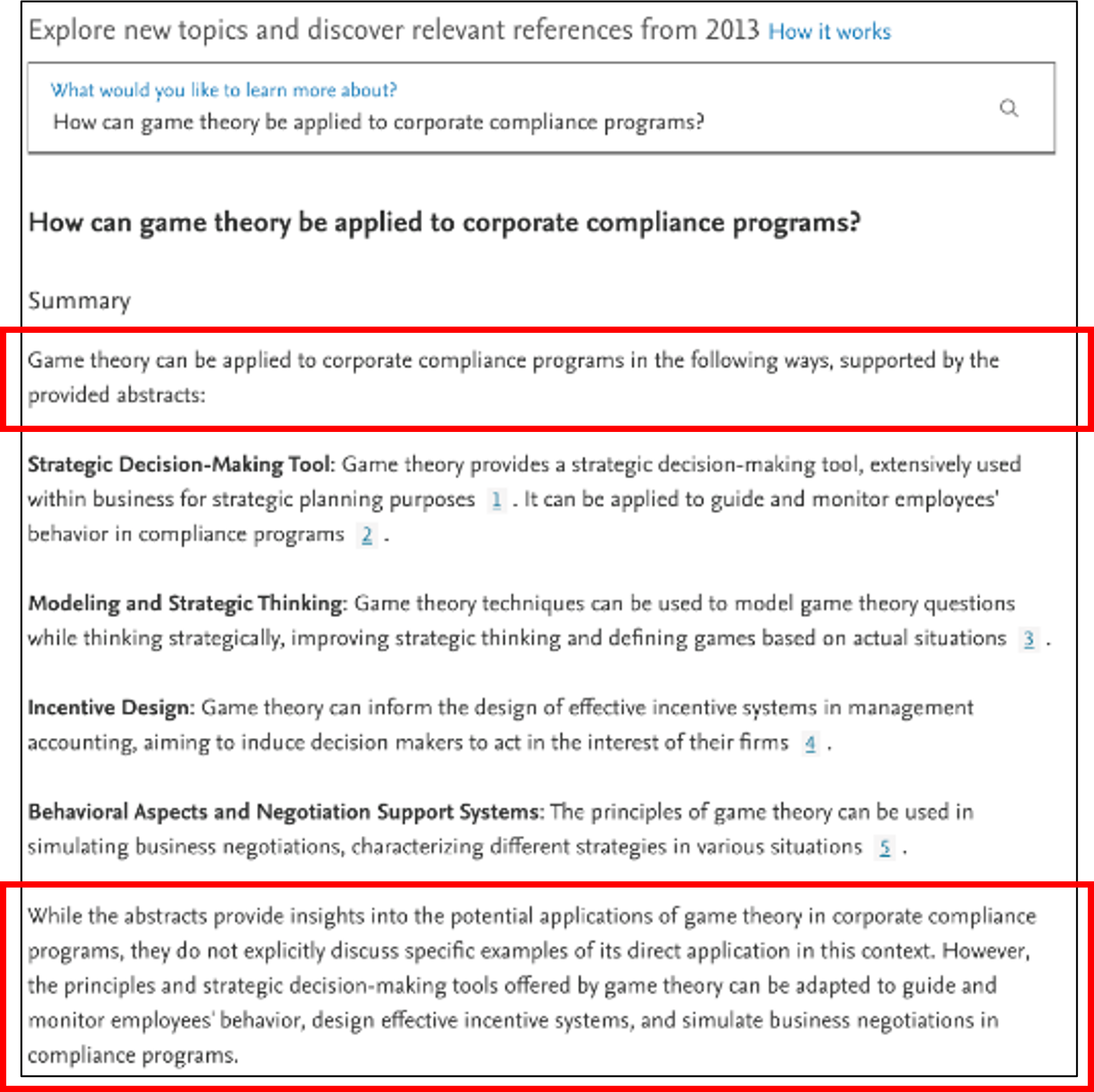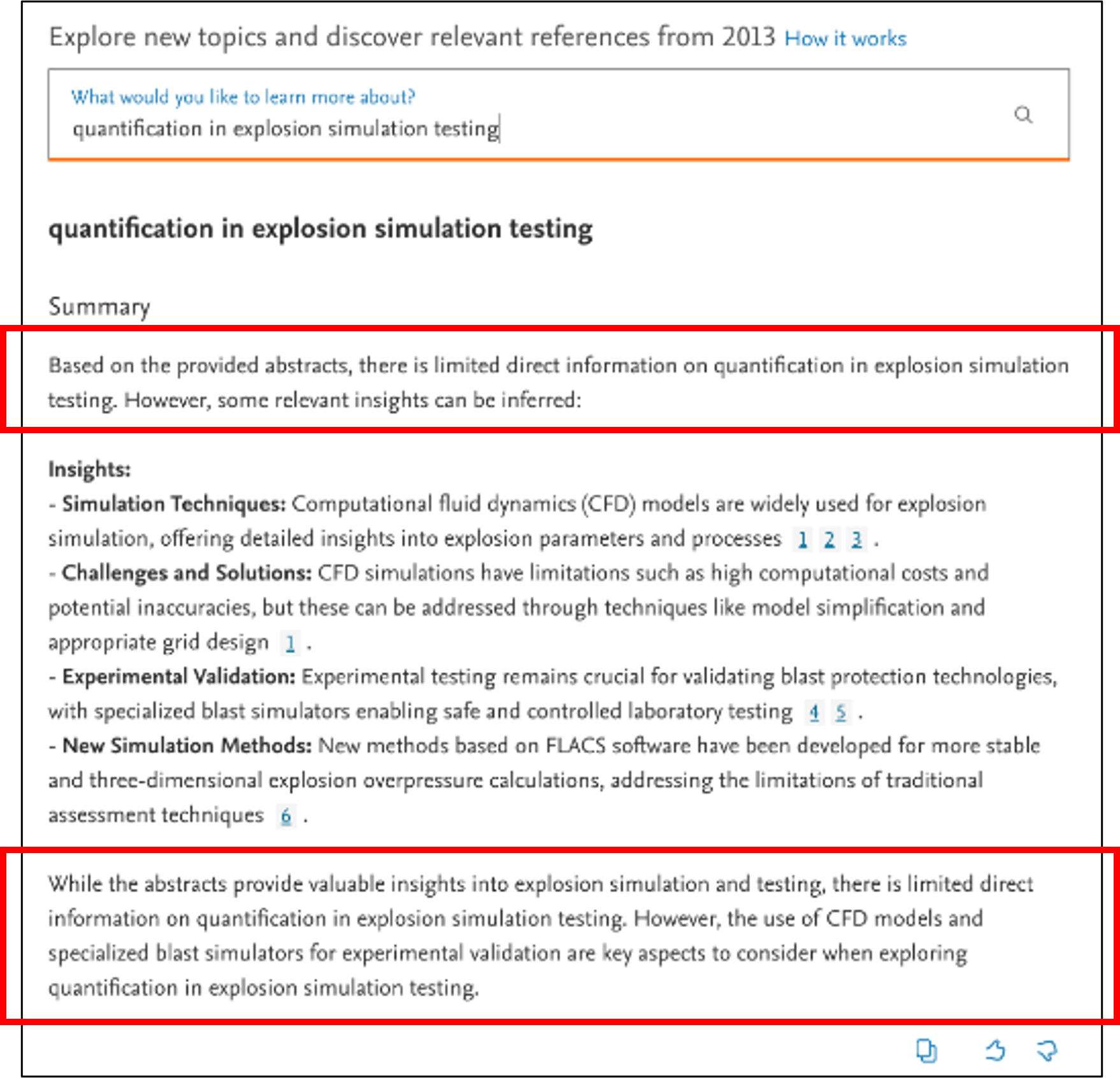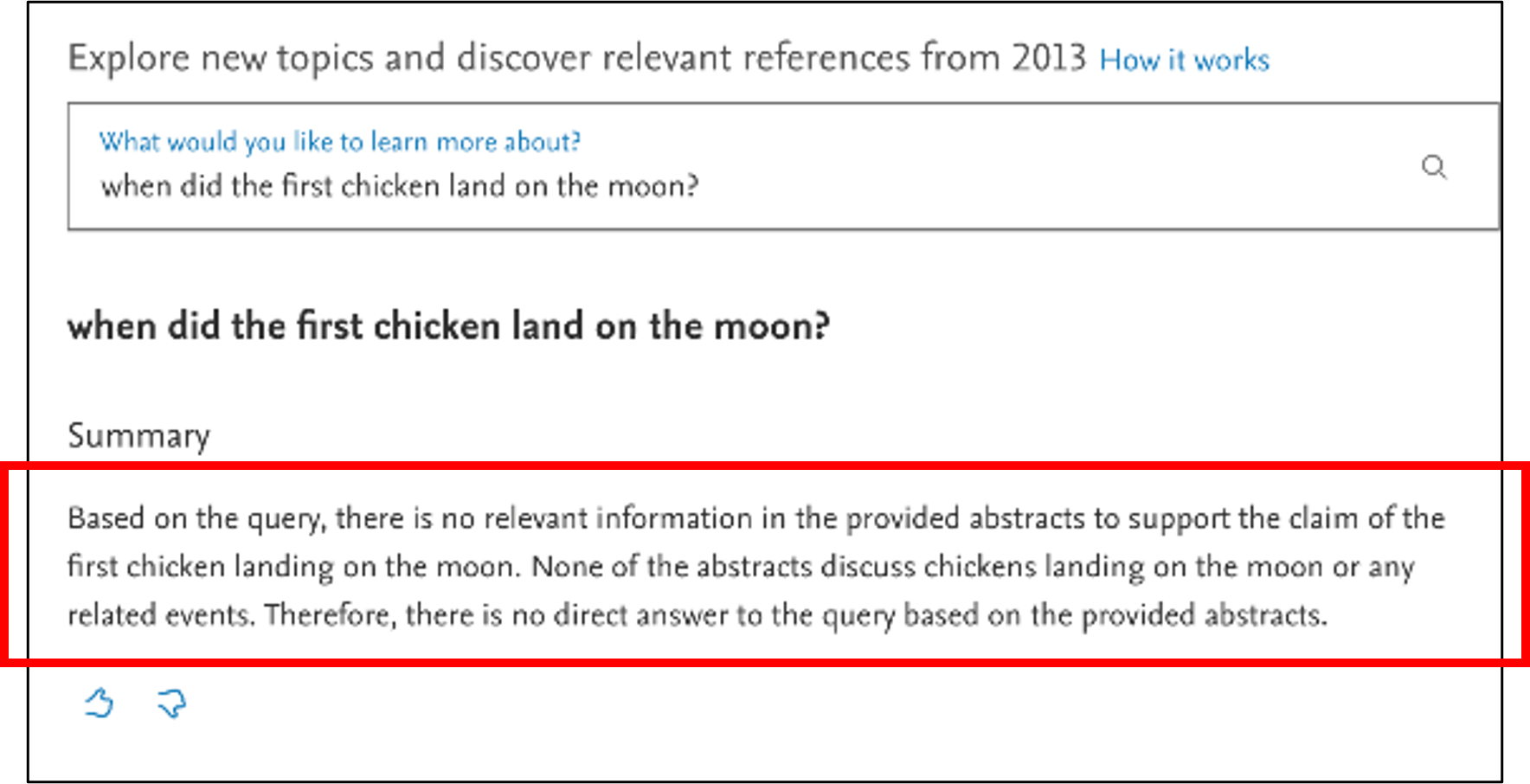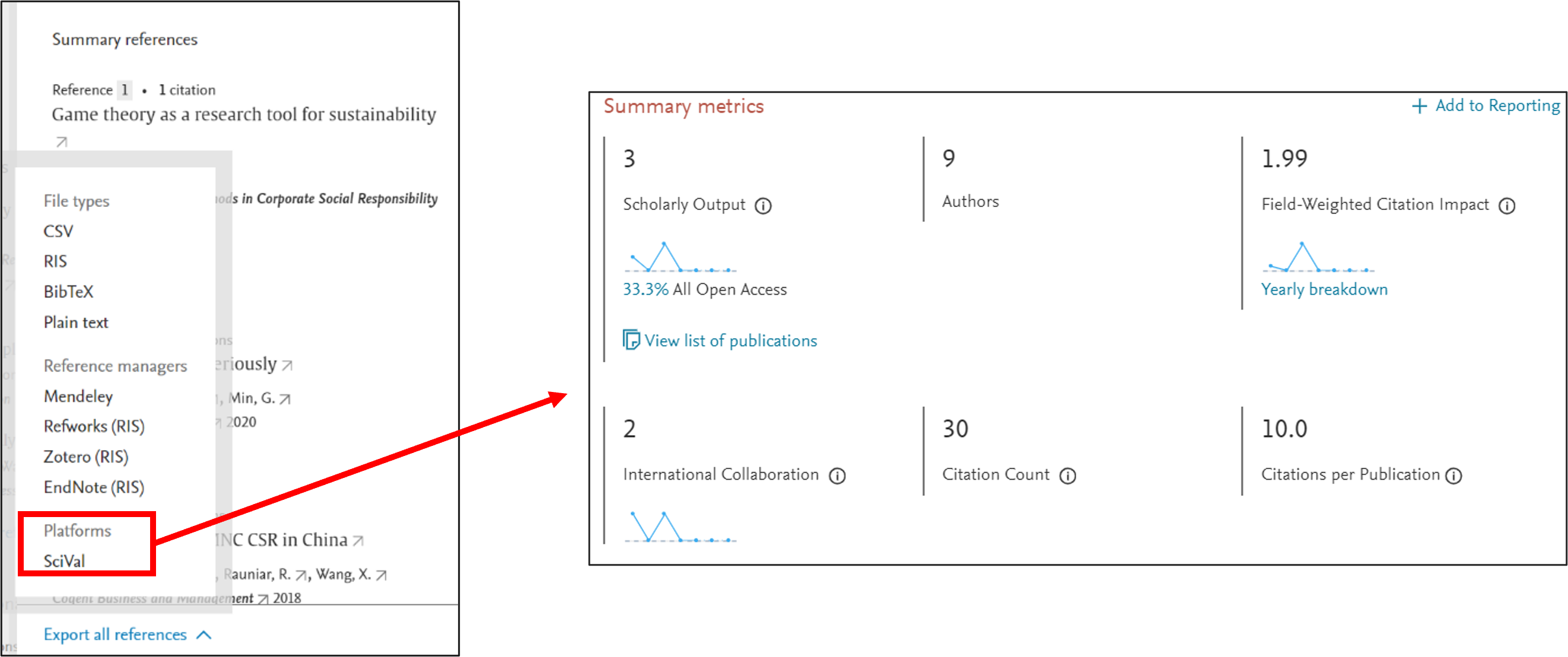Scopus AI Release: May 2024
The academic community was closely involved in designing and rigorously testing Scopus AI, and members continue to shape its future; for example, via user testing and in-product feedback. Since Scopus AI’s launch in 2024, we’ve tapped into community feedback to introduce the following features:
- Concept map relationships
- New SML reranker
- Reflection layer
- Export to SciVal
Concept map relationships: The Concept map has been updated so that when a user clicks on a node, it will explain how the node relates to the topic. When you click on a node, the relationship is highlighted in orange. Underneath the Concept map, the relationship will be outlined and an explanation of the relationship will be provided. If you click on a different node, the new relationship will be outlined and and the explanation will be updated.
New SML reranker: A new small language model reranker that significantly enhances the precision of our search capabilities, intelligently prioritizing the best Scopus article matches for your queries.
The Reflection layer: providing transparency and context about our confidence in the responses.
- If it has a high level of certainty it can answer your query, it will use direct language. It may also add nuance; for example, point out that there is heavy bias in one area.
- When its confidence in its answer is medium, it will provide an inferred response, making it clear through the language used that there is, for example, only limited information on this topic available in Scopus. In this case, nuance is always provided.
- And when Scopus AI can’t answer a question, it will tell you and suggest alternative, related queries.
Export to SciVal: Users now have the option to export references to SciVal to conduct further analysis.
Learn more about Scopus AI by clicking here.


